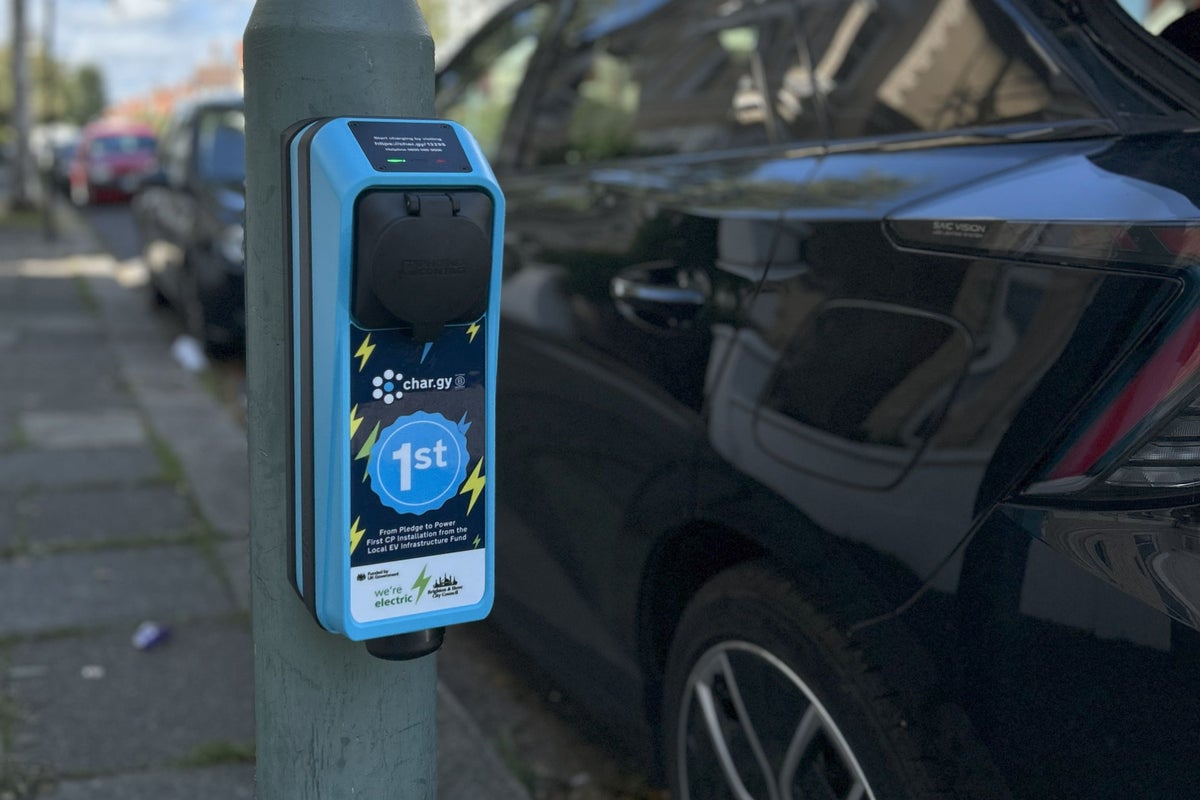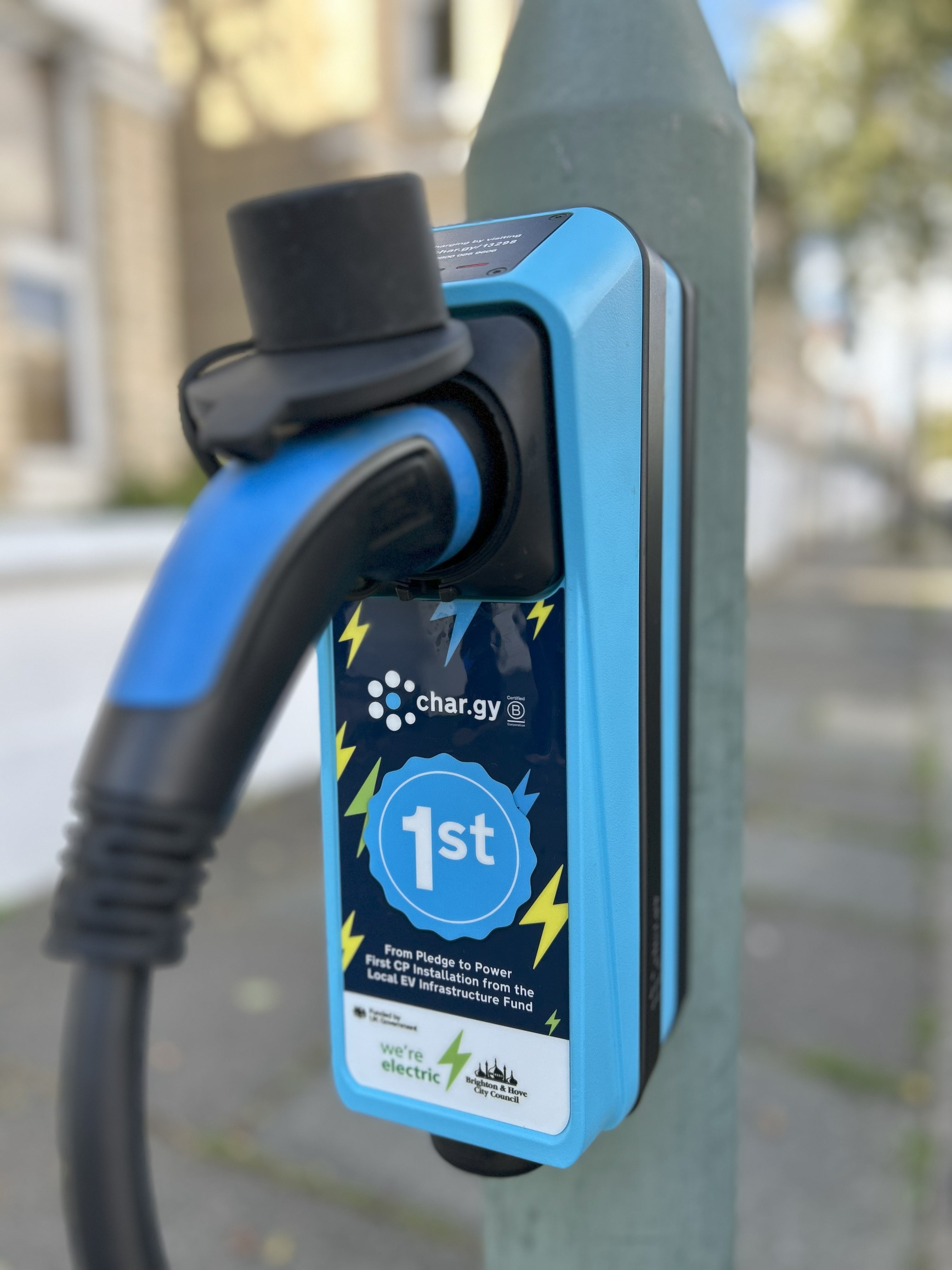
The first on-street electric vehicle (EV) charger has been installed as part of a project believed to be the largest of its kind in the UK.
Chargepoint operator char.gy said it has started fitting more than 6,000 kerbside chargers for Brighton and Hove City Council (BHCC) after securing a £130 million contract.
The rollout of public EV charging is seen as vital to persuade drivers without off-road parking to switch to electric motoring.
Installing street chargers near homes will reduce the need for people to drive to a charging station, and enable more motorists to take advantage of cheaper overnight electricity rates.

The new charger in Lawrence Road, Hove, is the first to be installed, supported by the Government’s £381 million Local Electric Vehicle Infrastructure (Levi) funding.
The scheme supports local authorities in England to plan and deliver charging infrastructure for residents without off-street parking.
John Lewis, chief executive of char.gy, said: “Our focus is on providing reliable, affordable and convenient EV charging for the residents who need it right now, and we won’t be slowing down.
“This is a win for sustainability and for the local community.”
Trevor Muten, cabinet member for transport and city infrastructure at BHCC, said the local authority is “leading the way in providing our residents, visitors and businesses with the infrastructure needed for the growing number of electric vehicle users in the city”.
A DfT spokesperson said: “We’re powering up an EV revolution in the UK and delivering £381 million to install over 100,000 chargepoints across the country, including in Brighton and Hove, so that local people can confidently make the switch to electric.
“More chargepoints on our streets will make it easier and cheaper to own an electric vehicle, meaning people can charge up cheaply no matter where they live and no matter where they travel.”
A report published by public spending watchdog the National Audit Office in December 2024 found the rollout of public EV chargers was “on track” to meet the 300,000 the DfT estimates will be the minimum needed by 2030.
The Government has pledged to ban the sale of new petrol and diesel cars and vans from 2030.







